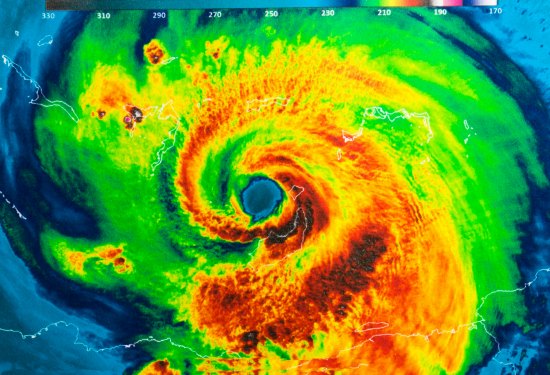Staying safe during a hurricane is always the main priority when mapping out your preparedness strategy, but many forget to plan for the aftermath scenarios or health issues associated with this type of emergency. If you have ever been through a hurricane, you know how unpredictable these storms can be.
Having the proper skills and training will provide an individual with a well-diversified knowledge base to help them be more adaptable at surviving the aftermath disaster. To help you and your loved ones stay safe during and after a storm, it is paramount you learn basic skills to help you handle disaster situations more fluidly.
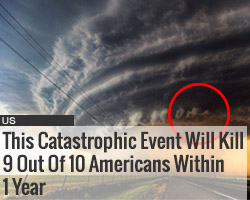
We have outlined 5 skills anyone who lives in a hurricane-prone area should know. This list is not exhaustive, but will put you on the right path to round out your preparedness plan.
1. Purify water
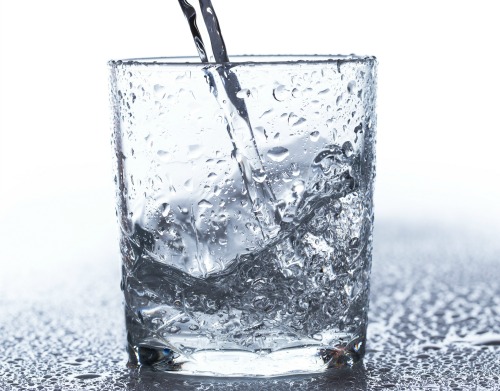
Water is the most important preparedness item for your body’s survival and one of the first items to disappear following an emergency. Dehydration can become dangerous during excessive heat spells, following a period of prolonged sweating, or even during winter months; and is one of the leading causes of medical issues that tend to arise after a disaster.
Learning ways to get to these water sources would be a proactive approach to accessing hidden water. If there is any doubt that the water you are about to consume may be compromised, it’s better to be on the safe side and treat it through one of the three water treatment methods: chemically, through distillation or through a boiling method.
While there are short and longer-term ways to store water, there may come a time when your stored water runs out and you must look elsewhere. When water is unavailable, we must tap into other sources for emergency use. According to FEMA, there are sources in the home that you can access for emergency water.
2. Manage electricity and gas
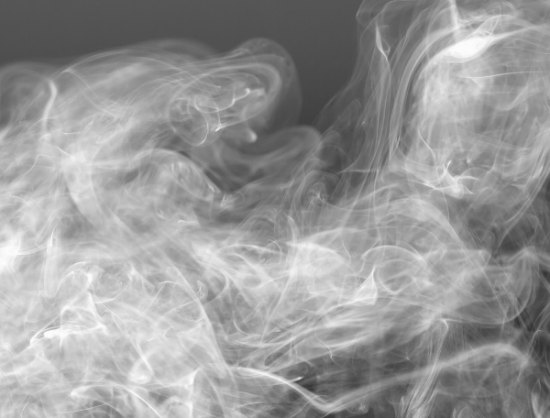
Electrocution can be a leading cause of death during a hurricane or major flood event because of downed power lines. As well, gas leaks can also pose a dangerous problem if left. Use these strategies to prepare and access these types of issues.
Manage electricity before a hurricane
- Learn where and how to shut off your home’s electricity. If flooding is expected, unplug all unnecessary electronic devices and monitor the situation. If emergency officials instruct you to turn off your electricity during a hurricane, you will need to turn it off at the circuit breaker.
- Use generators properly. If you own a whole-home generator, be sure to test it and fill the fuel to capacity if you have onsite fuel storage. If you plan on using a small portable generator to run small appliances in your home during a power outage, make sure you know the proper operation. Used improperly, they can create a fire hazard, risk of electrocution, or carbon monoxide poisoning.
- Use surge protectors. While it may sound obvious, using quality surge protectors will protect your valuable electronic equipment (think big screen TVs, gaming systems, computers) from power fluctuations during the storm, or if power is restored suddenly. Depending on where your are in the path of a storm, electric surges resulting from high winds and downed power lines may be your first challenge.
- Develop a plan for electricity-dependent medical equipment. If someone in your home has medical equipment that relies on power, contact your health provider about an emergency plan. If you have a disability or medical need, don’t forget to register with your state emergency assistance registry.
Manage natural gas before a hurricane
- You can leave your gas on at the meter. Do not turn off your natural gas service, even if you are required to evacuate. Only utility personnel should turn your natural gas supply on or off at the meter. However, if you evacuate we suggest that you do turn off the natural gas supply to individual appliances, using the small turn-off valve on the appliance.
- What’s that smell? Natural gas appliances such as stove tops, gas logs, and water heaters may act differently in a hurricane or flood. Be aware of gas leaks, extinguished pilot lights, and stoves that are left on.
- Watch for bubbles. Gas lines that run underground may be damaged by a uprooted tree. If you have a spot in your yard that is bubbling, it could be a gas leak. Other signs of a gas leak include discolored vegetation, blowing dirt, and the smell of rotten eggs. If you see any of these signs, leave the area and contact your local utility company immediately to report it.
3. Board up windows
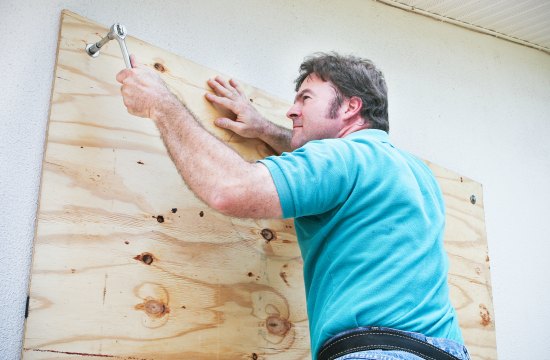
Broken windows are common occurrences with this type of storm and knowing how to protect your home is important for these preparations. Lumber is one of the many supplies to quickly disappear in preparation for disasters; therefore, having items ahead of time to be able to board up windows in a hurry will be very advantageous if you are short on preparation time.
This article goes step-by-step in how to board up your windows like a pro. Additionally, here is a how-to video on the subject.
4. CPR

Medical emergencies arise whether you are in the middle of a hurricane or not and knowing basic first aid and CPR can help you keep a family member alive while waiting for EMTs to arrive. During and after a storm, stress and trauma may intensify health conditions, which can lead to an increase in cardiovascular disease risk. The impact can be more intense for heart disease and stroke patients.
You need to start by knowing how to recognize the signs of a medical emergency. The elderly are more like to succumb to heart issues and knowing these signs and acting quickly could save the individual’s life. In an emergency medical situation, time is very important and people should be treated immediately and to the best of your ability. Here is a CPR, AED & First Aid Training Webinar
5. Flood mitigation
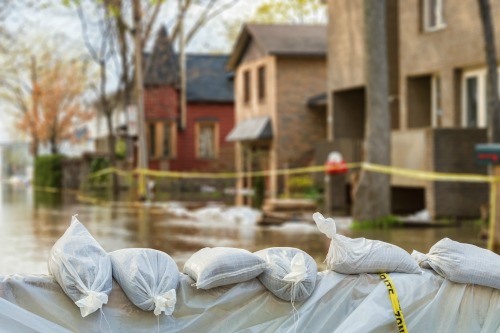
Hurricanes can cause extreme downpours that cause flooding. Gathering the necessary items ahead of time is the safest and most proactive approach to disaster safety. A good rule of thumb when planning for a possible disaster is to prepare for the worst case scenario so that all issues will be covered. Here is a list of essential supplies to prepare for a flood.
Not only can flood water cause home damage, but the risk of contracting an infectious disease is heightened after a hurricane, in large part due to flooding. Flood water is a perfect vehicle for pathogens: it can harbor bacteria, different viruses, and fungi – and often is contaminated with sewage and hazardous chemicals.
There are numerous reasons to avoid floodwater entirely. Wading through it – even if it is shallow – can cause drowning because moving water can sweep you off your feet, and can rapidly transport you to deeper bodies of water. Snakes and other dangerous creatures (depending on where you live) can lurk in floodwaters. Debris could be floating in it and could cause serious harm. And, of course, electrocution is a deadly risk – fallen power lines may have exposed the water to electricity.
To protect your home from flood damage, learn how to properly create a sandbag barrier or consider investing in a system called AquaDam.
The following articles can help you better prepare:
- Are You Ready? How to Survive a Flood
- Disaster Supplies for Flood Preparedness
- A Step-By-Step Guide to Preparing for Disasters
Safety should be your top priority when it comes to preparing for a hurricane and having as many skills to fall back on as possible will help you be more confident riding out the storm.

source : Tess Pennington

